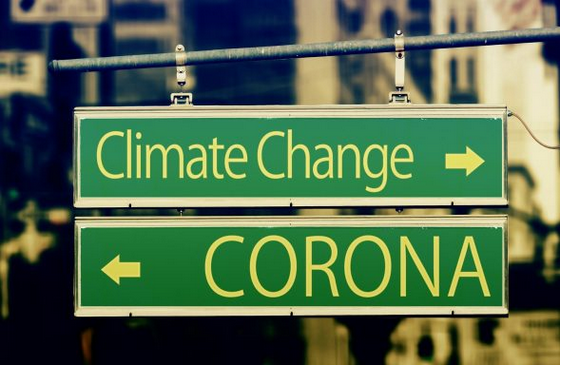Lessons from the COVID pandemic for climate breakdown
First of all, trust the scientists
Over this past year lots has been written and spoken about what lessons we might learn from the COVID pandemic for dealing with climate breakdown. They both affect the health of millions, with over 3.5 million dead from COVID-19; they disrupt the economies of almost every economy; and, they are subject to being distorted in political discourse. We also found that delaying to confront a critical problem is dangerous and costly. There is deep inequality with poor and disadvantaged communities suffering more than privileged people. Both crises are global in nature and scope and require international cooperation.
A critical lesson has been about science. In the midst of the COVID pandemic, scientists were center stage everywhere for much of the time, especially when matters were unclear. Of course, there were exceptions in the Trump White House and a few other regressive and repressive regimes, although even Trump could not entirely ignore the scientists.
We relied on the health scientists to explain what this COVID thing is, what we might be able to do to slow it down or minimize it (masks and social distancing), and how we might stop it (vaccines).

Photo: Gerd Altmann via Pixabay
Aligned against the health scientists were money interests that pushed to reopen local economies despite the grave risks in doing so. The tension between the advice by the health professionals and the lobbying of the money interests was obvious and continues as we write. Of course the money interests pushed the health community to support the economic actions, or at least minimize the public opposition to reopening. But the public paid particular attention to the health professionals, and their judgments, and it was clear that even Trump could not prevail in reopening what he wanted to reopen without endorsement of the health professionals. That has been largely true for other national, state and local governments across the world.
At the end of the day, Dr. Fauci in the US was trusted far more than was Trump and others like him.
In a similar vein, the general public, and even to some extent national governments, are relying more and more on panels of experts to define the nature and scope and extent of climate breakdown, and the need for corrective action. For instance, the Climate Change Committee in the UK has been a clear and powerful voice in advocating for more proactive responses to the climate risks by the UK government. In Ireland, the Climate Change Advisory Council (CCAC) has become increasingly more outspoken about the failures of the Irish government, a known laggard on climate action. This CCAC has served as a model for even the Irish EPA, the Citizens Assembly and the Oireachtas (legislature) Joint Climate Committee for pushing for more climate action.
At the international level, the long-term consensus of the International Panel on Climate Change (IPCC), reinforced by increasingly frequent and extreme weather events, has effectively silenced the climate denialists in most countries.
While these lessons are instructive, we also have to admit that one of the crowning achievements of the scientific community in the fight against COVID-19 was the development of the vaccines.
Unfortunately there is no vaccine for climate breakdown.
Sources:
World Health Organisation (WHO), Coronavirus disease (COVID-19): Climate change (22 April 2020). bit.ly/33AU73n
Editorial, “Climate and COVID-19: converging crises,” The Lancet (9 Jan 2021). bit.ly/3txF316
“Covid-19 and Climate Change,” Climate Central (28 April 2021). bit.ly/3o2LcBo
Klenert, D., Funke, F., Mattauch, L. et al. Five Lessons from COVID-19 for Advancing Climate Change Mitigation. Environ Resource Econ 76, 751–778 (2020). doi.org/10.1007/s10640-020-00453-w


No comments yet, add your own below